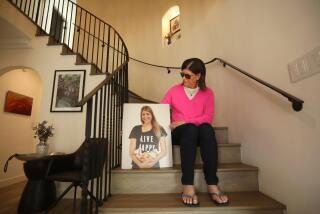DEADLY MEDICINE The Chilling Story of a Pediatric Nurse Who Murdered Scores of Her Infant Patients<i> by Kelly Moore and Dan Reed (St. Martin’s: $18.95) </i>
- Share via
The more helpless the victim, the more horrific the crime, and so the exploits of Genene Jones certainly take the cake: Between May 1981 and March 1982, Jones, a nurse in the Pediatric Intensive Care Unit (PICU) of San Antonio’s county hospital, injected at least 60 of her infant patients with deadly chemicals, killing at least 30.
The authors--Dan Reed is an actor and screenwriter; Kelly Moore, an attorney who specializes in civil litigation and family law--view this as the story of a few conscientious people, led by Jones’ boss, pediatrician Kathleen Holland, against an insensitive and unethical medical establishment. And while they play up this angle at times (beginning chapters with quotes from Baudelaire on eternal damnation and from Shakespeare on the nature of evil, for instance), their conviction, unfortunately, is supported by the evidence. After repeated warnings from Jones’ suspicious colleagues finally convinced managers at the San Antonio hospital to investigate the sudden rise in deaths in their PICU, Jones was discharged--but with a favorable recommendation. She moved on to another hospital, causing seven more emergencies and one fatality. Meanwhile, Holland found herself under sharp attack for speaking out against Jones; the hospital, for one, didn’t want parents to discover that their child’s death or $18,000 hospital bill had been due to negligence. “A grand jury can indict you using only a piece of what you have said,” one attorney warned Holland, even though she had done nothing illegal.
While Jones’ story is chronicled in more detail than some of us might wish, this book is distinguished by thorough research and a keen understanding of human character--even of Jones’ motivation. “If the child survived,” the authors write, Jones would see herself as “a vital part of that victory, a hero in her own and others’ eyes. If the child died, then she immersed herself in grief, visibly luxuriating in the depth of her compassion, empathy, and ability to love. That she actually lacked compassion, empathy, and love only made this hollow experience of grief all the more necessary. It served as concrete behavior that validated her self-image as a caring, heroic woman.”





